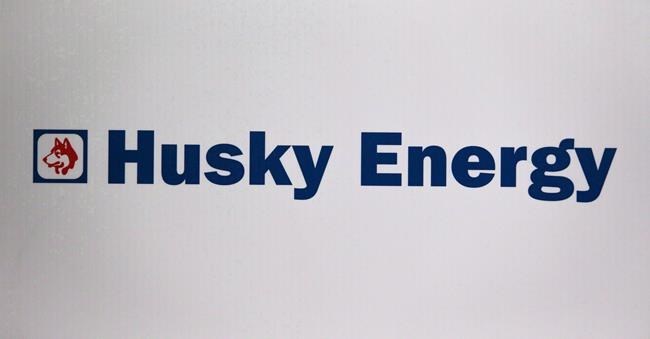CALGARY — Fears that crude oil prices slammed by a global economic "train wreck" will remain low for some time are forcing Calgary-based companies to write off billions of dollars in value from their oil and gas resources.
Husky Energy Inc. announced a $1.7-billion first quarter loss on Wednesday, including impairments of $1.1 billion after tax due to lower crude oil price assumptions plus an inventory writedown of $274 million.
Fellow oilsands producer Cenovus Energy Inc. reported a $1.8-billion loss including impairment charges of $335 million in its upstream business due to low oil prices and $253 million from inventory.
On Tuesday, Vermilion Energy Inc. reported a $1.3-billion loss after taking a $1.2-billion writedown in the value of its oil and gas assets in Canada and internationally.
"It was clear from what we were seeing on the product demand side in North America that we were going to see supply and demand collide in a very messy way this quarter," Husky CEO Rob Peabody told a conference call with financial analysts Wednesday.
"Our strategy is to keep as many barrels away from the train wreck as possible to minimize negative cash margin."
He said Husky has shut-in 80,000 barrels per day of Canadian upstream oil since the end of the quarter, while its two U.S. refineries are processing about 100,000 fewer barrels per day because of lower fuel demand in the United States.
Cenovus, meanwhile, has cut about 60,000 bpd mainly from its Alberta oilsands output to deal with lower prices, said CEO Alex Pourbaix, who said on a conference call there's no way to tell how long low oil prices will persist.
"We know this pandemic will pass, the markets will recover and, as benchmark prices begin to return to more normalized levels, we expect to see these price-driven impacts to our business begin to reverse themselves," he said.
"What's not clear is exactly how long that's going to take."
Global oil prices have plunged over the past two months and remain volatile due to demand destruction from measures to fight the COVID-19 pandemic, as well as lingering effects of a market share battle between Russia and Saudi Arabia.
On Tuesday, Desjardins Energy Research cut its West Texas Intermediate crude oil price forecast to US$32.50 per barrel this year (from US$40) and to US$40 per barrel in 2021 (from US$45). It expects Brent oil prices to average US$37.50 this year and $45 in 2021.
On their calls, Husky estimated it needs Brent oil prices in the mid-US$30s to break even on its oil production, while Cenovus said its break-even WTI number is about US$38 per barrel.
Fears that North American crude storage was nearing its limit were blamed earlier this month for the first-ever negative WTI close — which means contract holders were paying buyers to take their oil.
Both Peabody and Cenovus vice-president Keith Chiasson said storage growth is slowing thanks to industry-wide production cuts that are bringing supply and demand closer to balance.
Cenovus reported total production of 482,600 barrels of oil equivalent per day in the three months ended March 31, up about eight per cent from 447,000 boe/d in the year-earlier period.
Recent levels were aided by as much as 100,000 bpd of crude-by-rail shipping, ramped up after the Alberta government announced new rail shipments would be exempt from its oil curtailment program introduced at the start of 2019.
The company has suspended all rail shipments now, however, as the use of pipelines is cheaper and there is sufficient capacity.
For the same reason, Husky's Peabody said the Alberta government should "ditch" its curtailment program.
Husky production in the first quarter, before cutbacks, was 299,000 boe/d, with 235,000 boe/d from Western Canada and 63,900 boe/d from its Canadian offshore and Asia Pacific operations.
Despite cutting its quarterly dividend by 90 per cent to 1.25 cents per share, Husky shares rose in trading on the Toronto Stock Exchange, jumping by as much as 49 cents or 13.3 per cent to $4.15 on Wednesday.
Cenovus shares rose by as much as 52 cents or 11.87 per cent to $4.90.
This report by The Canadian Press was first published April 29, 2020.
Companies in this story: (TSX:HSE, TSX:CVE)
Dan Healing, The Canadian Press




